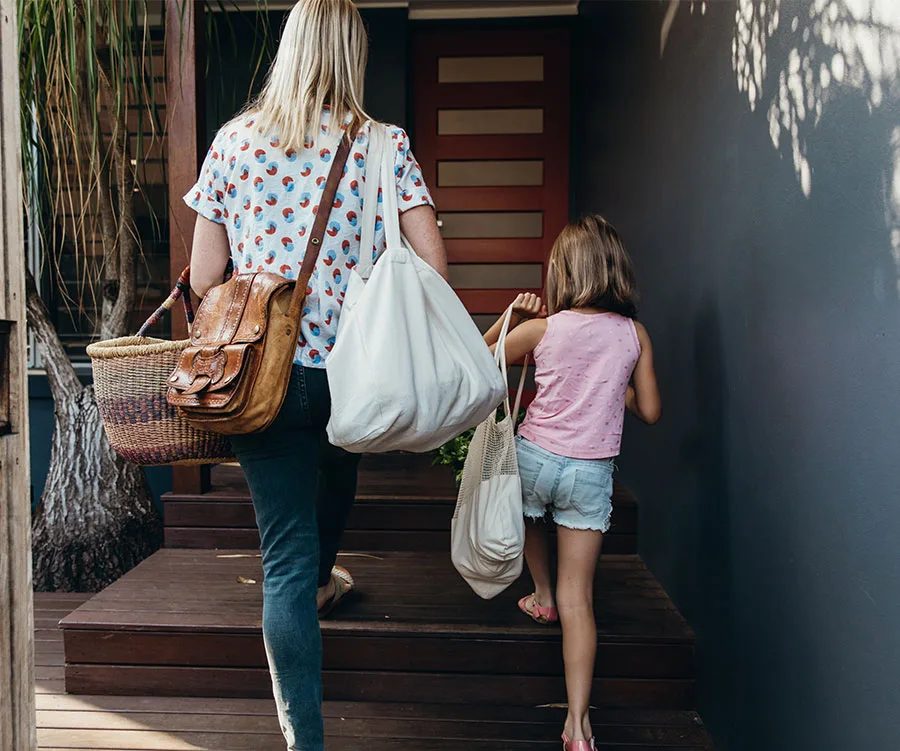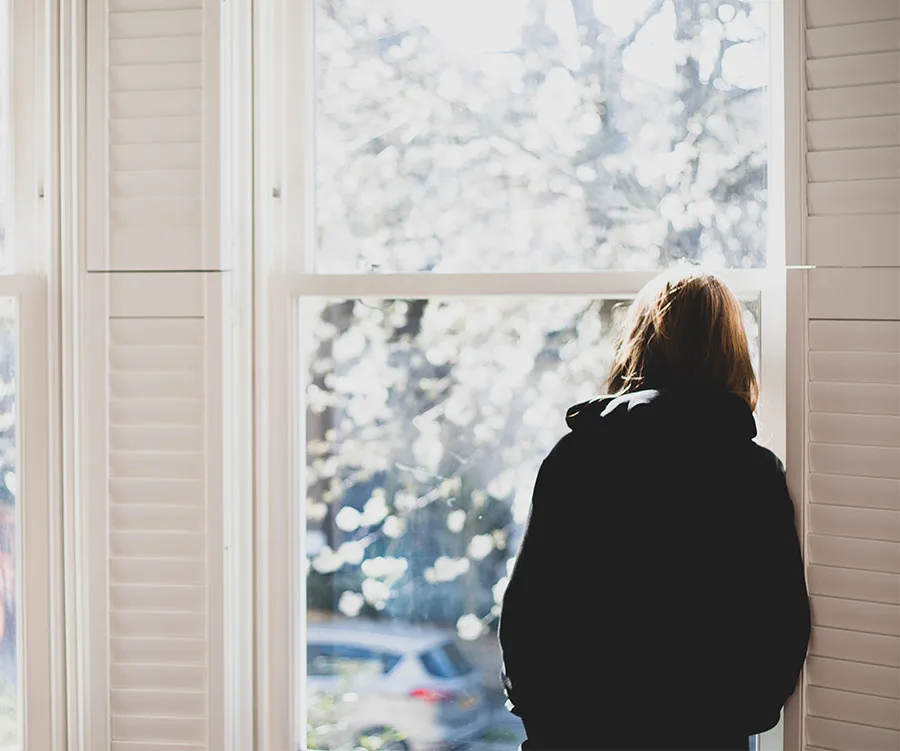As we enter adulthood and navigate everything that comes with it – work, kids, a mortgage, you know the drill – our childhood starts to feel further and further away.
While there are some consistencies that remain throughout, in a lot of ways, life moves on. Everything is rosy. That is, until it isn’t.
Increasingly, research shows that major issues in adulthood – from addiction and anxiety to compulsive overeating and relationship issues – can be better understood, and resolved, by looking back toward our childhood.
For anyone who experienced trauma in their early, formative years, those feelings can linger in your psyche and resurface later in life, explains Diane Young, Addiction and Trauma Specialist at South Pacific Private.
“Many of us who see ourselves as ‘successful’ adults don’t relate to our current behaviours and values to childhood experiences, until something becomes problematic and a professional connects it back – this can often be a light-bulb moment.”
Young runs South Pacific Private’s renowned “Changes” program – a holistic, experiential therapy program designed to identify and resolve lingering childhood trauma. A typical client would be someone like Cath* who has recently gone through a tough divorce and is now struggling with anxiety and depression. Growing up as the eldest child with a single mum who was an alcoholic, Cath always felt she had to be the perfect one, keeping it all together. Her marriage ending has triggered all her feelings from childhood – the shame, the sense of failure, that nagging feeling that something was wrong with her and she was responsible for it all.
“Childhood is where we learn how to relate, where we develop our sense of self-worth and our interpersonal skills, so even minor forms of trauma, abuse or neglect can have an outsize influence later on in life,” she says.
The program is part of the treatment centre’s longer three-week inpatient program which has helped more than 13,000 Australians over the past 30 years as they work toward recovery from addiction, depression, anxiety and trauma. When South Pacific Private opened its doors in 1993, it was the first Australian facility to offer trauma-informed and family-focused workshops as core elements of its program.
Want to know more about how childhood experiences can affect your adult relationships? Here, Young helps us connect the dots between our past and our present.

Childhood trauma can present later in life. Anxiety, depression, addiction and mental health challenges can be symptomatic of painful and unresolved childhood experiences.
What is the definition of childhood trauma?
“It is any experience that has a negative impact and is overwhelming to the child. Adverse Childhood Experiences (ACEs) include abandonment, neglect, divorce, death, being raised in a family with addicted parents or parents suffering with mental health issues. Abuse, of course, plays a significant role – whether it’s sexual, physical, emotional or spiritual.
“It is not always obvious to outsiders either. Some families can look perfect on the outside, but may be rife with painful and destructive relational patterns that have long-lasting consequences.”
Addiction, anxiety, depression, mental health: How childhood trauma can present later in life.
“Many people have no idea that they are carrying around ‘old’ emotional wounds and then an event – like having a baby, discovering betrayal in a marriage or losing a job – can trigger those early painful experiences. We see people presenting with depression, anxiety or acting out in addiction; life has become overwhelming and difficult for them. They have little joy and libido can be low, too.
“Even if the events of our childhood don’t stick in our minds and aren’t something we’re actively thinking about, we can be replaying the interpersonal lessons we learned from an event or repeating the coping mechanisms we learned at that time.”

Childhood trauma can impact adulthood in various ways. If you are dealing with addiction, anxiety, depression, and mental health and wellbeing challenges, reach out or speak to an expert.
How can childhood trauma sabotage later relationships?
“Unresolved childhood experiences can sabotage our relationships in a whole host of ways; it may turn up as sexual dysfunction, affairs, not wanting sex or addiction (including alcohol, drugs, gambling, shopping, work, disordered eating) or it can present as extremely low self-worth, an inability to set healthy boundaries or maintain healthy relationships.
“Difficulty regulating feelings is another common symptom; clients find themselves either overwhelmed with rage or they are emotionally-frozen, finding connection and expression near impossible. All of which can be obvious to their partner and family, but not to the sufferer.
“What I have noticed more and more, is that how we were spoken to and treated as children is how we speak to ourselves as adults, and how we allow others to speak to us now. The voices of our parents or caregivers can become our internal dialogue and we continue to judge ourselves by the values and standards we were raised with – and sometimes they’re not the healthiest things to be evaluating ourselves on.”
How can you recognise that you have a problem and that it’s linked to past events?
“When the behaviour, substance or emotions seem to have control of you, rather than you having control of them – that’s a key sign that you have a problem. The behaviour will be something you’re using to dull your pain or not feel at all. When thinking about the past, you will do everything to not feel the pain, fear or shame of those experiences. Other signs include feeling on ‘high alert’ all the time, having flashbacks, experiencing high levels of anxiety, codependent relationships and low self-esteem.”
What shouldn’t you say to someone dealing with childhood trauma?
“‘Get over it’, ‘it wasn’t that bad’ and ‘what’s wrong with you?’ are statements that are shaming and judgmental. They’re not helpful for the person suffering with a significant mental illness and can actually make things worse.”

How can someone break the habit of repeating past negative behaviours?
“Reach out for help – usually this is from a partner, friend or family member. And make the call to a mental health professional – a therapist, counsellor or GP. As overwhelming and as isolating as it may feel, you’re not the first person to go through this. There is help available if you reach out.”
How do you help treat childhood trauma, depression and anxiety?
“At South Pacific Private, we address each client individually. We work with the client to gently unpack their trauma and hold them whilst we navigate this painful place. We look at any addictions that are present and then support them with any relational difficulties they are experiencing in their lives.
We offer on-going support through day programs when they have completed their inpatient program. We truly believe everyone is capable and worthy of recovery.”
HELP AND INFORMATION:
If you would like more information on South Pacific Private for yourself or a loved one, call 1800 063 332, seven days a week or take a free self-assessment here.
If you or someone you know needs help now, call Lifeline on 13 11 14. If someone is in immediate danger, call Triple Zero (000).
Brought to you by South Pacific Private.
*Name has been changed to protect identity.











